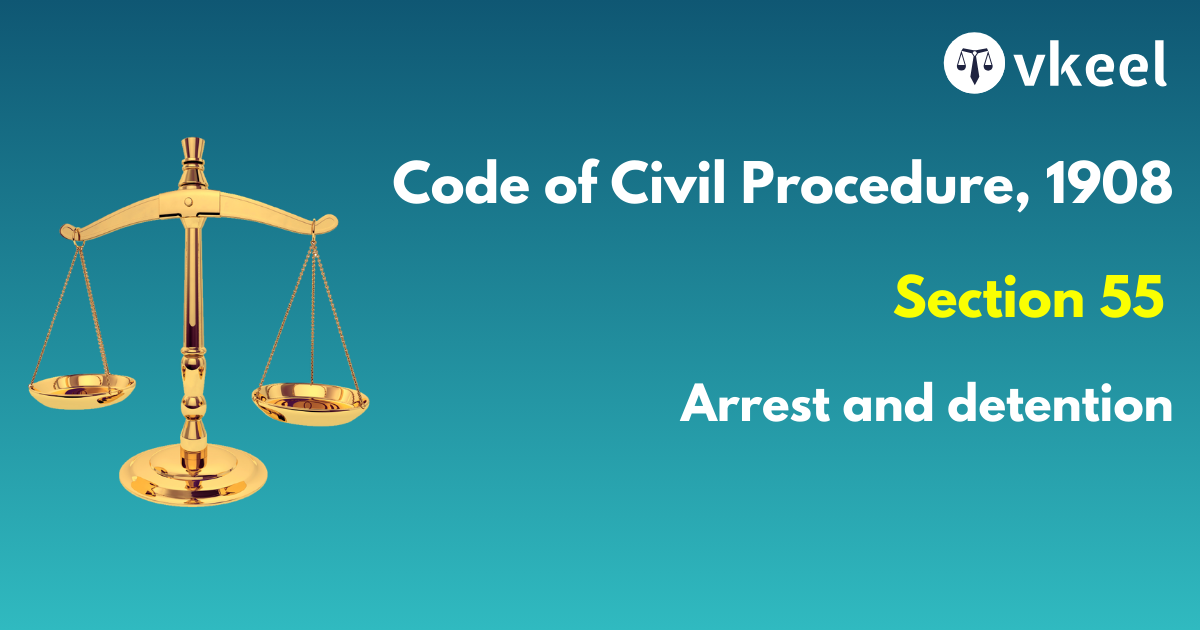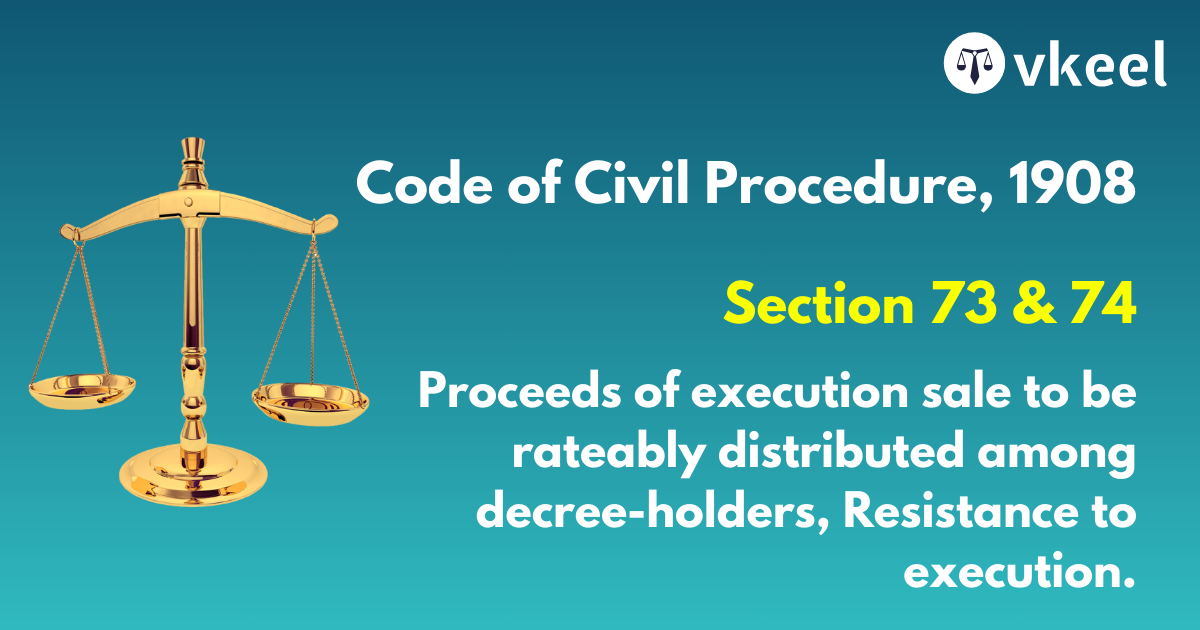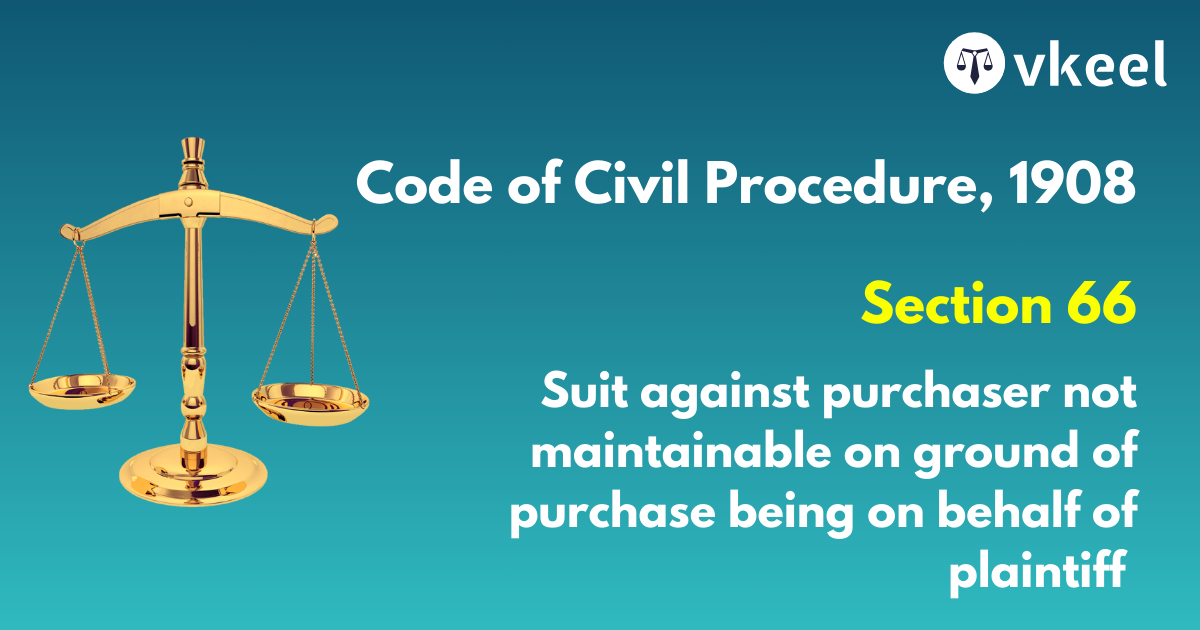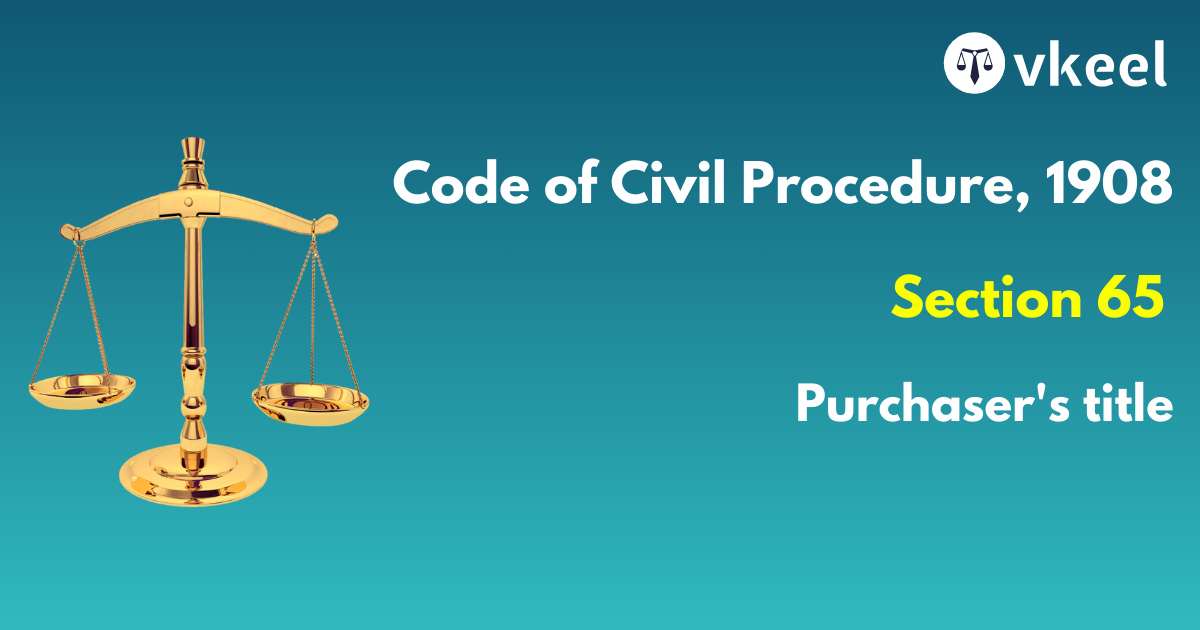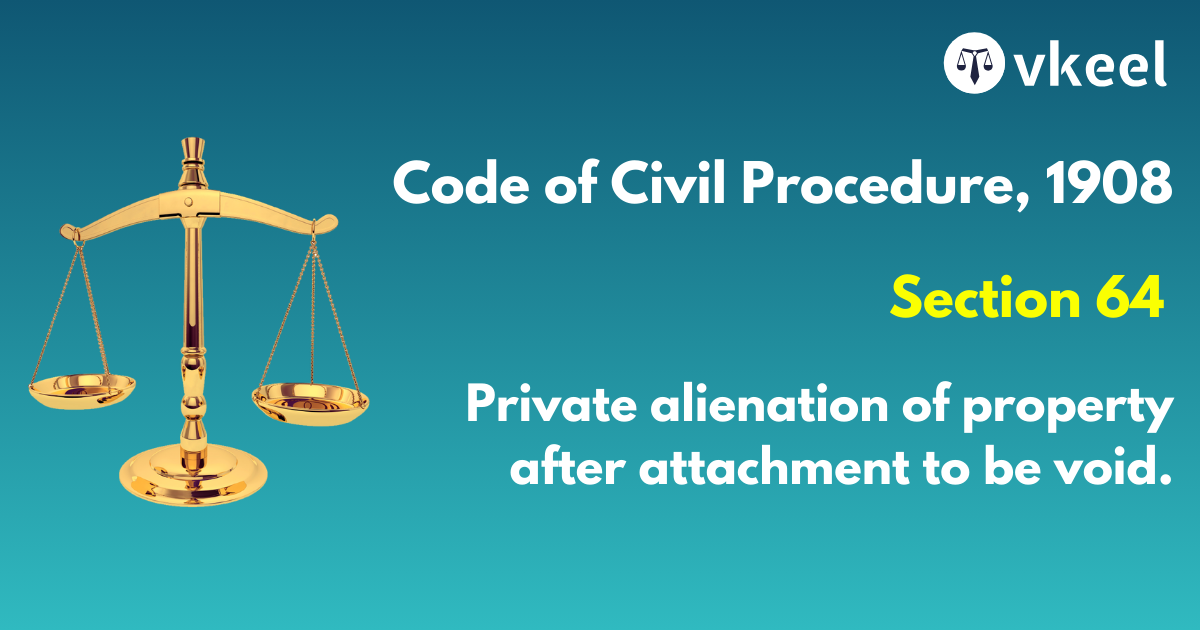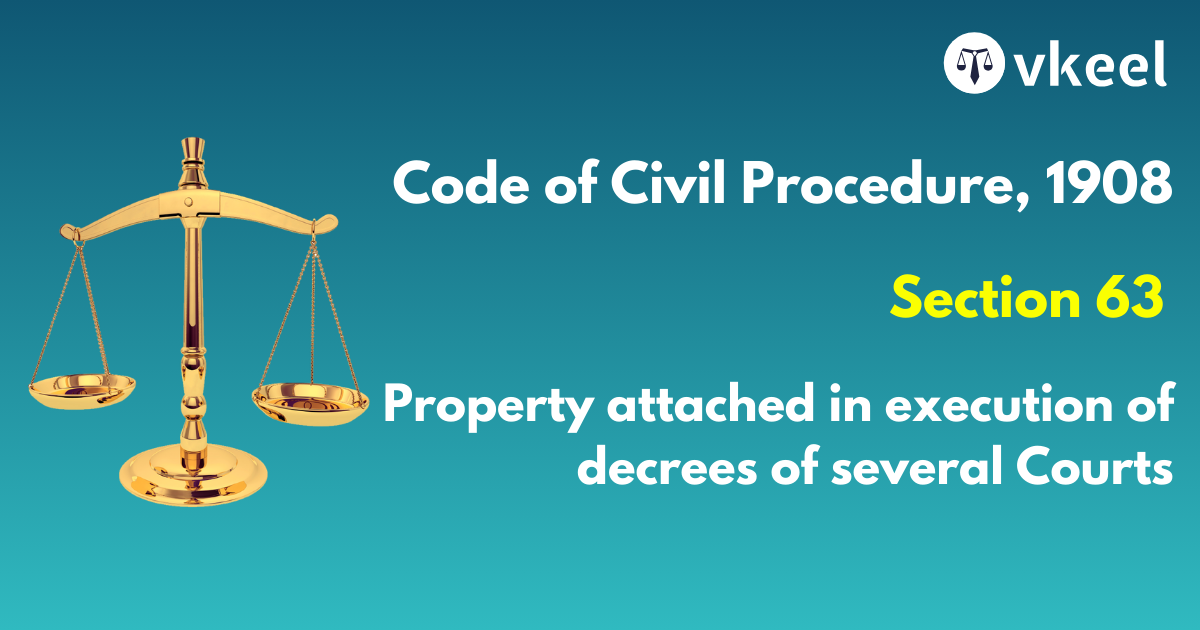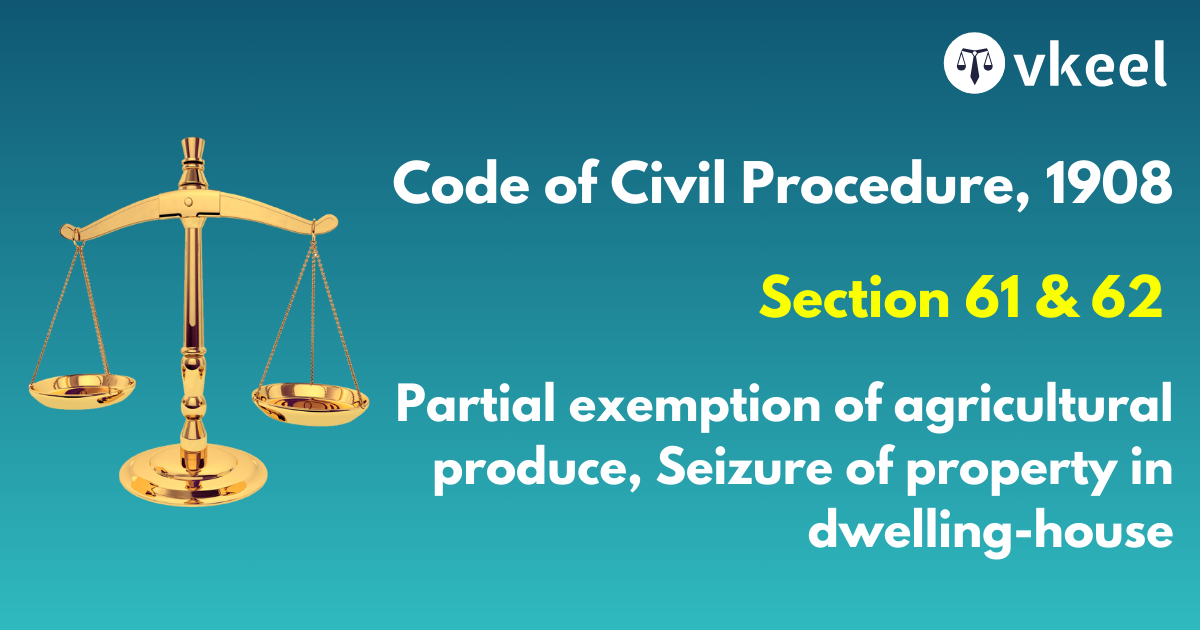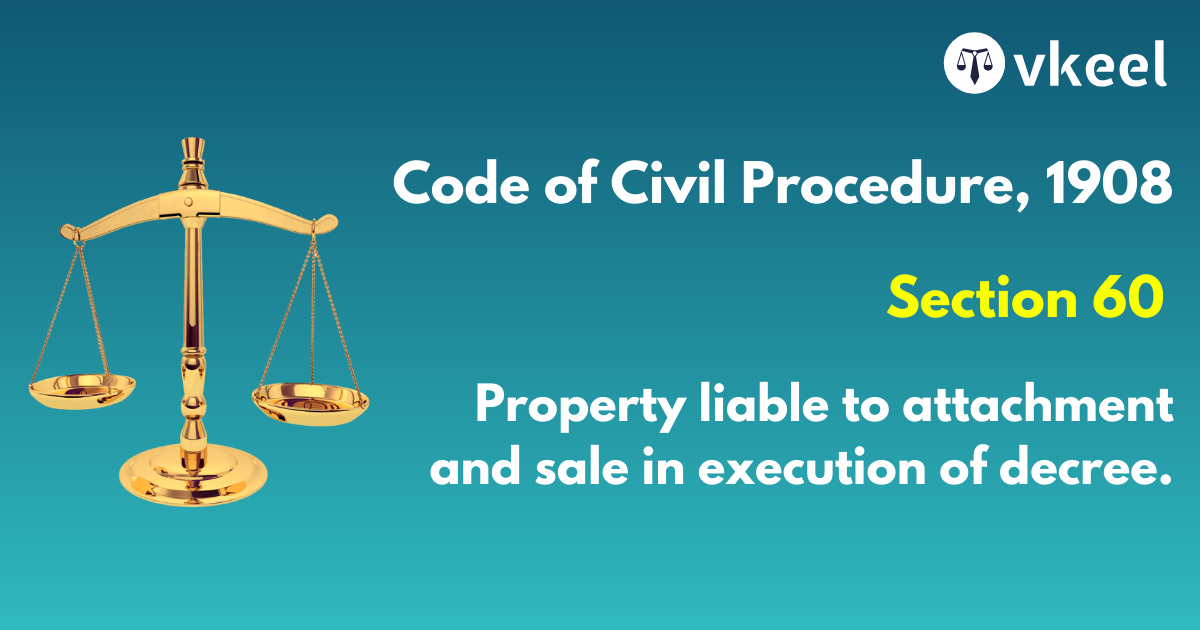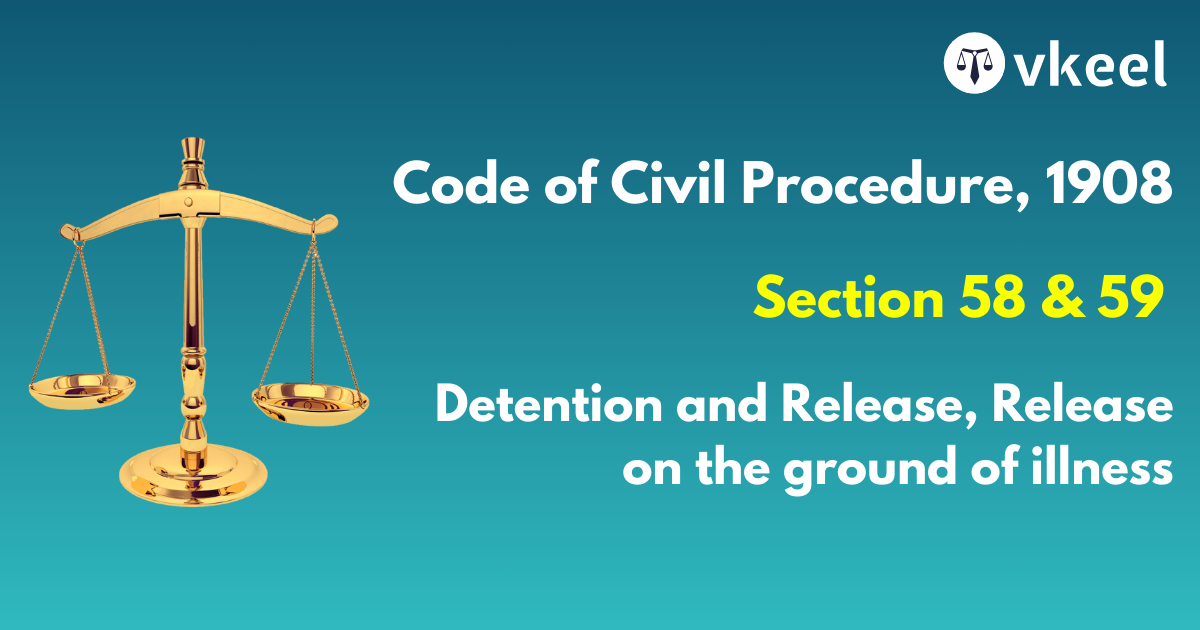Section 55 of the Code of Civil Procedure,1908
By Joy Puri
Introduction
The section 55 of the Code of Civil Procedure in its very verbiage talks about the arrest and the detention of the judgement debtors if such scenario prevails.
It further entails that in a matter wherein the judgement debtor deliberately avoids the payment despite holding the possible means to do the former, one can be arrested under the Section 55 of the Code of Civil Procedure,1908.
Section 55 of the Code of Civil Procedure, 1908
Arrest and detention
(1) A judgment-debtor may be arrested in execution of a decree at, any hour and on any day, and shall, as soon as practicable, be brought before the Court, and his detention may be in the civil prison of the district in which the Court ordering the detention is situate, or, where such civil prison does not afford suitable accommodation, in any other place which the State Government may appoint for the detention of persons ordered by the Courts of such district to be detained:
Provided, firstly that, for the purpose of making an arrest under this section, no dwelling-house shall be entered after sunset and before sunrise:
Provided, secondly, that no outer door of a dwelling-house shall be broken open unless such dwellinghouse is in the occupancy of the judgment-debtor and he refuses or in any way prevents access thereto, but when the officer authorized to make the arrest has duly gained access to any dwelling-house, he may break open the door of any room in which he has reason to believe the judgment-debtor is to be found:
Provided, thirdly that, if the room is in the actual occupancy of a woman who is not the judgment-debtor and who according to the customs of the country does not appear in public, the officer authorized to make the arrest shall give notice to her that she is at liberty to withdraw, and, after allowing a reasonable time for her to withdraw and giving her reasonable facility for withdrawing, may enter the room for the purpose of making the arrest:
Provided, fourthly, that, where the decree in execution of which a judgment-debtor is arrested, is a decree for the payment of money and the judgment-debtor pays the amount of the decree and the costs of the arrest to the officer arresting him, such officer shall at once release him.
(2) The State Government may, by notification in the Official Gazette, declare that any person or class of persons whose arrest might be attended with danger or inconvenience to the public shall not be liable to arrest in execution of a decree otherwise than in accordance with such procedure as may be prescribed by the State Government in this behalf.
(3) Where a judgment-debtor is arrested in execution of a decree for the payment of money and brought before the Court, the Court shall inform him that he may apply to be declared an insolvent, and that he 1 [may be discharged] if he has not committed any act of bad faith regarding the subject of the application and if he complies with the provisions of the law of insolvency for the time being in force.
(4) Where a judgment-debtor expresses his intention to apply to be declared an insolvent and furnishes security, to the satisfaction of the Court, that he will within one month so apply, and that he will appear, when called upon, in any proceeding upon the application or upon the decree in execution of which he was arrested, the Court 2 [may release] him from arrest, and, if he fails so to apply and to appear, the Court may either direct the security to be realized or commit him to the civil prison in execution of the decree.
Landmark Case Laws
P Bhaskar Rao v K Sreenivasa Rao, 2013
When a judgment-debtor is arrested in execution of a decree for the payment of money and brought before the Court, the Court shall inform him that he may apply to be declared an insolvent, and that he may be discharged if he has not committed any act of bad faith regarding the subject of the application and if he complies with the provisions of the law of insolvency for the time being in force, and if he expresses his intention to apply to be declared as insolvent, he is required to furnish security. The above situation arises only after arrest of the judgment debtor but not before that.
The decree holder by examining himself disclosed about the assets of the judgment-debtor which the judgment-debtor failed to rebut either by examining himself or any other person or by producing any material, as such, it cannot be said that the judgment-debtor has no means to discharge the decretal amount.
Kasi Subbaiah Mudali Vs Kasi Veeraswamy Mudali, 2002
Where the Court holds inquiry and record/finding as to the means of judgment debtor in his absence, the order sending judgment debtor to Civil prison would be illegal.
Wariur CB Ld Vs Kaja,1926
Sub-section (4) makes it clear that where a surety undertakes (1) that the judgment-debtor will within one month apply to be declared an insolvent and (2) will appear, when called upon, in any proceedings upon the application or upon the decree in execution of which he was arrested, he will be liable when there is failure to comply with either of these two conditions.
Conclusion
To conclude to the Section 55 of the Code of Civil Procedure, 1908 it can be said that the provision also provides the exemptions and limits the scope of the detention arising thereof. The outlining point focuses that it ensures that the arrest is not made by exercising arbitrary powers.
Disclaimer:
The information provided in the article is for general informational purposes only, and is not intended to constitute legal advice or to be relied upon as a substitute for legal advice. Furthermore, any information contained in the article is not guaranteed to be current, complete or accurate. If you require legal advice or representation, you should contact an attorney or law firm directly. We are not responsible for any damages resulting from any reliance on the content of this website.

